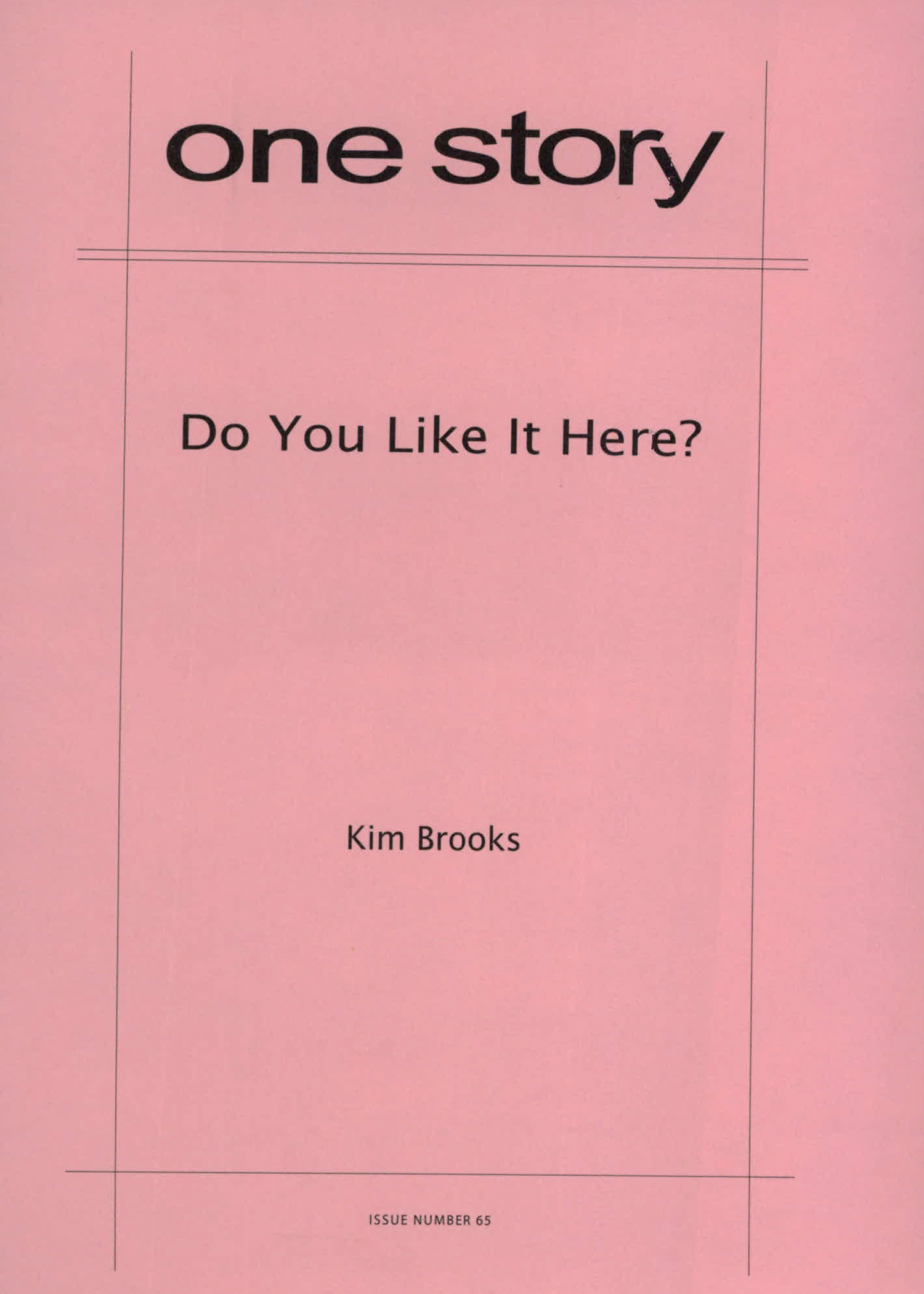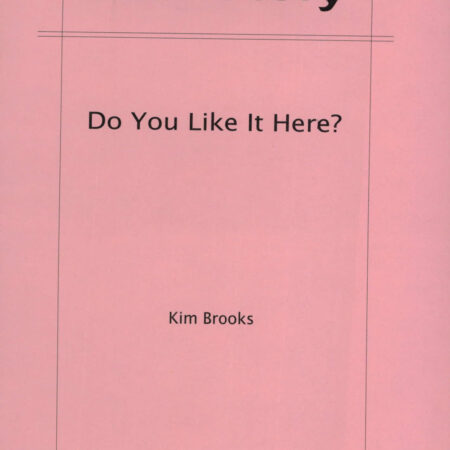
Do You Like It Here?
$2.50
25 in stock
Excerpt
For as long as Claire Knox could remember, her father had made a point of leaving checks for her in unexpected places: a coat pocket, the pages of a photo album, the inside of a shoe. He left them blank and unfolded, stuck to the back of a Post-it note with instructions. At some point during the lunch intended to celebrate her fortieth birthday, he managed to slip a check inside her mitten with a note that read, Take my grandchildren on a long vacation. A friend/enemy of mine owns a resort in the Caribbean. The kids will love it. You can even bring your husband if you like. -N. There was a phone number to call at the bottom. She crumpled the check, and then un-crumpled it. She had no right to refuse such generosity.
The night Claire arrived with her family it was hot and raining. As soon as they stepped onto the curb outside the airport she became aware of the texture of her clothing, the weight of her hair spreading out beneath a canopy of frizz. Everything smelled faintly of nutmeg and jet fuel. Her husband Cameron and her two children, Zoe and Michael, squeezed into the backseat of the cab, leaving the front for her and their carry-on luggage.
“I’ll give ten dollars to whoever can tell me when and why we invaded this country,” Cameron said.
Kim Brooks
Kim Brooks earned her MFA from the Iowa Writers’ Workshop where she was a Teaching-Writing fellow. In 2003, she was awarded a Michener-Copernicus Fellowship. Her stories have appeared or are forthcoming in the Missouri Review, Epoch, Meridian, and the Alaska Quarterly Review. She lives in North Carolina with her husband and dogs. She has just completed her first novel.
Q&A by Hannah Tinti
- HT: Where did the idea for this story come from?
- KB: The idea of Zoe’s condition came from my mother, who was diagnosed with fibrosarcoma when she was sixteen and had a portion of her jaw removed along with the tumor. Growing up, I could never see her face as damaged; I could only see it as my mother’s, and so at least from my perspective I don’t feel like it had a large influence on our relationship. But one day I began to wonder if the same would hold true from a mother’s point of view. That was the initial inspiration, but the idea didn’t really come into a focus until a couple years ago when my in-laws treated the family to a vacation at a resort in the Caribbean. There was something slightly lurid about the atmosphere—all these languid couples sunning themselves on boulders, and then there was our big, boisterous family right in the middle of it. The stark contrast got me thinking it would be an interesting setting in which to plop a family in crisis.
- HT: What was the most challenging aspect of writing this story?
- KB: Claire’s character eluded me for a long time. She was the first mature female protagonist I had written (I had been using a lot of male narrators) and she was a hard nut to crack. Looking back, I think the problem through the first few drafts was that I didn’t like her very much and my dislike was poisoning the story. I put it in a drawer for a long time, then gave it to my husband, who’s also a writer and my best reader, for one more revision. He said, “How come everyone’s so mean to each other? There’s a lot of animosity here.” He was right. When I took out the meanness, which amounted to about half the text, it finally worked.
- HT: Why does Claire have so much trouble looking at her daughter’s face? Is it from guilt?
- KB: I think it’s more from fear. A lot of Claire’s power has arisen from her femininity, her sexuality—I’m thinking of both her marriage and the overbearing affection of her father. She resents this power but she’s also learned to depend on it, and she fears for Zoe who will have to somehow make her way in the world without these crutches.
- HT: The last image of this story is so powerful. Why do you think mothers and fathers go about loving their children so differently?
- KB: It’s hard to generalize, of course, but in my experience, mothers have a harder time separating their own happiness from the well-being of their children. Whenever I criticize my own mother for being over-involved in her children’s lives, she reminds me that, “A Jewish mother is only as happy as her least happy child.” This seems to be the case for a lot of the mothers I’ve known, Jewish or otherwise. I’m not trying to imply that mothers love their children more than fathers—but in general, the investment they make in their children seems to take a greater toll on their mental health.
- HT: How long did it take you to complete this story?
- KB: Two and a half years passed between the time I finished the first draft and the time this most recent draft was accepted for publication. Thankfully, I did a lot of other work in between.
- HT: What is the best bit of advice about writing you have ever received?
- KB: I have two. The first is from a character in a Delmore Schwartz story who thinks, “You have to love human beings if you want to write stories about them. Or at least you have to want to love them. Or at least you have to imagine the possibility that you might be able to love them.” It’s a lot more difficult than it might sound. The second is from Ethan Canin, one of my instructors at Iowa. He told me early on during my first semester and many times thereafter that I needed to learn to write a plot, to have one action force the next in some sort of logical fashion. He compared plot to a laundry line; you can hang anything you want on it, but without it all you have is a pile of wet clothes. I know there are some writers who would disagree with this guideline, but for me, accepting it turned out to be a major turning point.
- HT: What are you working on now?
- KB: I’m just finishing up my first novel. It’s the story of a woman’s life told in three parts: her childhood in Richmond in the 60’s, her young adulthood in up-state New York in the 70’s, and her single motherhood in Israel in the 90’s. Next, I’d like to work on a story or two, then start in on a second novel, this one about the Yiddish theatre.
